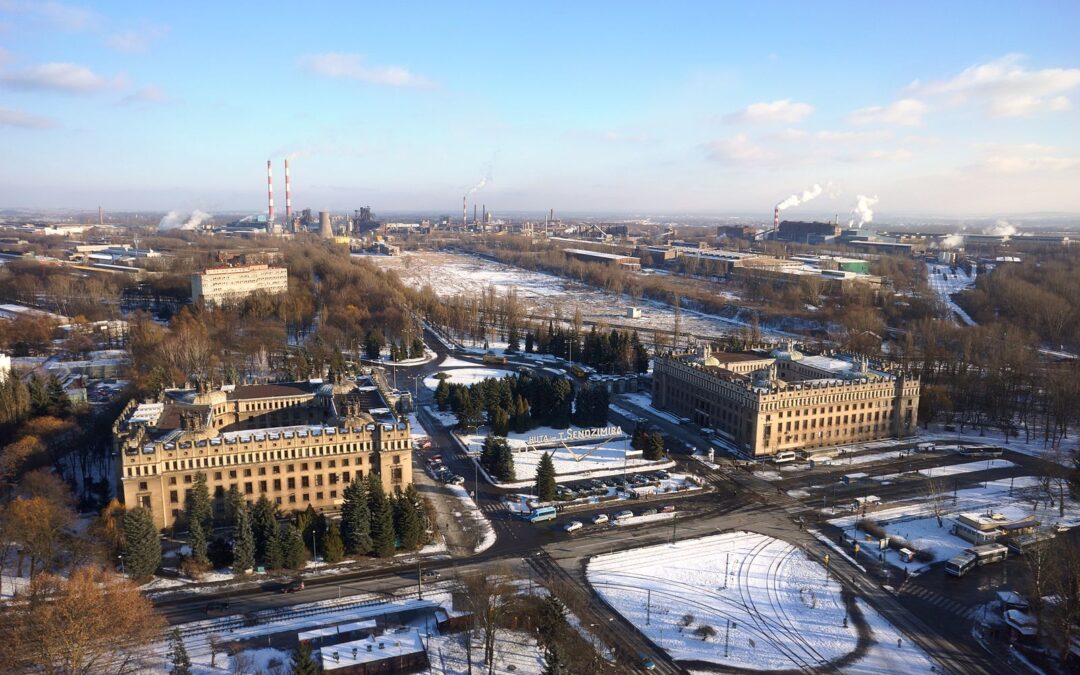ArcelorMittal, the world’s largest steelmaker, has decided to permanently shut down its blast furnace in Kraków, marking a symbolic end at what was previously Poland’s second-largest steelworks.
The decision will result in 650 workers losing their jobs, confirming fears expressed by unions last year. They have threatened to call a strike if ArcelorMittal does not reverse the decision.
Production at the facility was already temporarily halted in May 2019, and in November ArcelorMittal began what it said at the time was a temporary shutdown of the blast furnace until market conditions improved.
The company provided a large part of its 1,200 workers with alternative jobs at its other facilities in Kraków and Dąbrowa Górnicza, where its two further blast furnaces in Poland are located. Many also took early retirement.
The head of the company’s supervisory board, Sanjay Samaddar, says the latest, final decision to permanently shut down the furnace was taken after the coronavirus pandemic exacerbated an existing crisis in Europe’s steelmaking industry.
“Although we have been observing a slight increase in demand for several weeks, mainly due to replenishment of stocks, the demand for steel is still significantly lower than before the pandemic,” said Samaddar, quoted by Gazeta Wyborcza. “This means that we have to make difficult decisions.”
Nie tylko pandemia sprawiła, że dział. firmy stała się nierentowna, ale i np. brak skutecznych środków ochrony rynku UE i niedawna decyzja KE o kolejnym zwiększeniu kontyngentów bezcłowych na import stali spoza UE w czasie, gdy zapotrzeb. na nią w Europie gwałtownie spadło. pic.twitter.com/iuhxOpDZCL
— ArcelorMittal Poland (@ArcelorMittalPL) October 8, 2020
The firm had previously also cited difficulties in production due to the global overcapacity in the steel sector. It pointed to a rise in imports from outside Europe, increases in the price of raw materials and high prices of carbon dioxide emissions under the EU’s Emission Trading Scheme, reports TVN24.
The process of shutting down the blast furnace and steelworks will begin this month and take weeks to complete. The company will then move production to Dąbrowa Górnicza.
“This will allow us to increase our cost competitiveness,” says Samaddar. “We want to continue producing steel in Poland and continue deliveries to our customers…based on one location.”
Kraków’s famous steelworks – which were created under communist rule as part of a new industrial district of the city, Nowa Huta, and named after Vladimir Lenin – were purchased by ArcelorMittal (initially as Mittal Steel) in 2005.
The company has invested over 500 million zloty (€112 million) in the local processing part of the steelworks, which include two rolling mills and a sheet galvanizing and painting line. These will remain in operation, as will a coke plant in Nowa Huta.
Nowa Huta (literally, New Foundry) district in Kraków – a vision of the ideal socialist city, which radiates avenues from a central (now taken down) Lenin statue, built up from the ground around the Sendzimir steelworks. pic.twitter.com/YmrHTHNzg5
— Maria Wilczek (@mariawilczek) June 13, 2020
Last year’s decisions by ArcelorMittal to temporarily close down part of the plan was met with protests from trade unions, who submitted a petition to the prime minister saying they felt “cheated” by the company and government, which “had assured that the blast furnace in Kraków would not be shut down” ahead of the October 2019 parliamentary elections.
The prime minister responded by saying that the situation is “all because of the European Union’s climate policy”. He also suggested that, if the steelworks had not been “sold off by previous governments”, the situation would have not arisen.
Following the latest announcement of a permanent closure of the blast furnace, unions responded by demanding that the decision be reversed. If it is not, then they have threatened a strike among ArcelorMittal employees in Kraków and an appeal for those in Silesia – the province where Dąbrowa Górnicza is located – to do the same.
ArcelorMittal has postponed the temporary shutdown of its blast furnace and steel plant in Krakow after protests by workers, over 1,000 of whom would have been affected by the shutdown https://t.co/0v8Y8a3gh2
— Notes from Poland 🇵🇱 (@notesfrompoland) July 26, 2019
Main image credit: Piotr Tomaszewski/Wikimedia Commons (under CC BY-SA 4.0)

Maria Wilczek is deputy editor of Notes from Poland. She is a regular writer for The Times, The Economist and Al Jazeera English, and has also featured in Foreign Policy, Politico Europe, The Spectator and Gazeta Wyborcza.




















